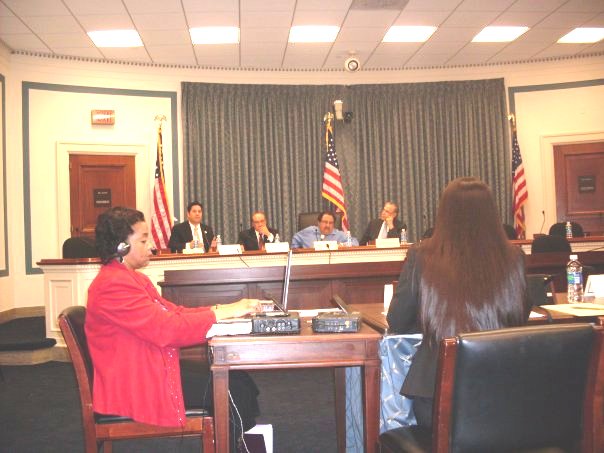
On Wednesday afternoon the Congressional Hispanic Caucus (CHC) convened a hearing entitled “The State of Latino Education”. The hearing was chaired by Rep. Raul Grijalva, chairman of the Education and Job Training Task Force; he was joined by freshman Rep. Ben Lujan (D-NM), Rep Ruben Hinojosa (D-TX), and Rep. Joe Baca (D-CA).
This event served as a forum for Latino leaders to make education policy recommendations to CHC members, some of whom will be involved in the crafting of education legislation, such as Rep. Hinojosa who chairs the Committee on Education and Labor’s Subcommittee on Higher Education, Lifelong Learning, and Competitiveness.
Organizations that testified at the event included MALDEF, Cuban-American National Council, NALEO, and LULAC.
CHC members heard testimony from various national Latino advocacy organizations on important issues in education affecting Latinos at all stages from early education through higher education and on to workforce readiness. Many alarming statistics about Hispanics in education were discussed, including the fact that only 57.8 percent of Hispanics graduate from high schools annually.
The common theme among panelists was that Latino students were not performing as well as their white counterparts academically. The panelists, when prompted by Grijalva, were in full agreement that the Latino community is lacking in resources. The Arizona Congressman, eager to hear testimonials from the community, said, “We’ve long been afterthought, now this is our opportunity to be included.”
Latino leaders urged CHC members to include full funding for Head Start programs in federal education legislation. Special emphasis was made on the Migrant and Seasonal Head Start program since it serves such a needy and underserved segment of the Latino student population.
Alicia Diaz, Federal Relations Director of the Cuban-American Council, discussed the importance of early childhood education for Hispanics, “Hispanic children under the age of five are less likely to be enrolled in pre-k care.”
Citing specific cases in Dade County, Florida –Diaz stressed that quality Head Start programs would make the difference in helping Hispanics perform better academically once they entered elementary school.
While discussing the significance of K-12 education reform for Hispanics, Brent Wilkes, Executive Director of LULAC stressed the fact that attention should be made to the 18% of Hispanics who are English Language Learners (ELLs).
Ronald Blackburn Moreno of ASPIRA, a national organization dedicated to developing the educational and leadership capacity of Hispanic youth, said that Latinos would benefit from schools being held accountable for teacher quality and effectiveness.
Blackburn Moreno also stressed the need for more high level Latino appointments in the Department of Education, because those from the community will have more of an understanding of what needs to be done to help Latin youth.
Ruth Lopez, a policy analyst for MALDEF, addressed the dropout crisis of Latinos and the fact that there are 2, 000 high schools that have been identified as “dropout factories”, schools that produce over 50% of our nation’s dropouts. Lopez emphasized that MALDEF is one of the founding members of the Campaign for High School Equity (CHSE), a national coalition of organizations dedicated to improving high school education to prepare every student for graduation, college, work, and life.
Rep. Joe Baca stated that there is much work to be done for Latinos students. He added that he had introduced two bills that would benefit Latino youth. Last year he introduced The People Resolved to Obtain an Understanding of Democracy (PROUD) Act, which authorizes $150,000 for the Secretary of Education to fund a demonstration program to help schools develop and offer elective classes with curriculum based on the citizenship exam and create a path towards citizenship for responsible immigrant high school students. It was introduced in the last Congress and has not yet been reintroduced.
Baca also introduced the Teacher Education Assistance Creating Hope (TEACH) for our Future Act. The bill provides $25,000 in loan forgiveness under both the Federal Direct Loan (FDL) program and the Federal Family Education Loan (FFEL) program for teachers who have taught full-time for 5 consecutive years at any public school in the nation.

Recent Comments